GCSE Physical Education Years 10 & 11
Specification
AQA - The specification and assessment structure can be found at the link: https://www.aqa.org.uk/subjects/physical-education/gcse/physical-education-8582
What will I study?
Paper 1: The human body and movement in physical activity and sport
What is assessed?
- Applied anatomy and physiology
- Movement analysis
- Physical training
- Use of data
Paper 2: Socio-cultural influences and well-being in physical activity and sport
What is assessed?
- Sports psychology
- Socio-cultural influences
- Health, fitness and well-being
- Use of data
Non-exam assessment: Practical performance in physical activity and sport
What is assessed?
- Practical performance in three different physical activities in the role of player/performer (one in a team activity, one in an individual activity and a third in either a team or in an individual activity).
What Skills and qualities are required?
- High competence in at least 3 different sports.
- Genuine interest in the physiological and psychological elements of sport.
- An understanding of the administration and structure of sporting opportunities for young athletes.
- Ability to relate theoretical study to the practical environment.
How will I learn?
The course will be assessed on both theory and practical ability. Lessons will be divided between the two disciplines in line with priority as the two years progress. Students will be given a detailed scheme of work for the theory at the start of the course. Student will also receive an outline of the practical framework with the necessary assessment points in the first week of the course.
How will I be assessed?
Theory - Two written exams lasting 1 hour 15 minutes each. Each paper carries 78 marks and is worth 30% of the final GCSE. There is a mixture of multiple choice, short and extended answer questions.
Non-Exam Assessment - Assessed by teachers and moderated by AQA. This is marked out of 100 and is worth 40% of the GCSE.
Where could it lead?
Teaching, Physiotherapy, Sports Administration, Medicine, Sports Psychology and many more.
Year 10
| Topic | Further details about the topic | Skills | |
|---|---|---|---|
| Autumn Term | |||
| 1 | Applied Anatomy and Physiology |
Musculo-Skeletal system |
Development of knowledge of gross anatomical structures |
| 2 |
Practical Block 1 Biomechanical Basis of Human Movement |
Football/Rugby practical |
Football/Rugby Practical Skills |
| Spring Term | |||
| 1 |
Practical Block 2 Principles of Training |
Handball practical
|
Handball practical skills
|
| 2 | Principles of Training | ||
| Summer Term | |||
| 1 | Practical Block 3 |
Athletics practical |
Athletics practical skills |
| 2 |
Sports Psychology |
Skill and ability Antecedents of arousal Stress management techniques Aggression Personality Motivation |
Evaluation of psychological theories applied to sport |
Year 11
| Topic | Further details about the topic | Skills | |
|---|---|---|---|
| Autumn Term | |||
| 1 |
Sports Psychology |
The Inverted-U theory of arousal |
Evaluation of psychological theories applied to sport |
| 2 |
NEA Written Coursework: Evaluating and Improving Performance |
Completion of written coursework |
Evaluating performance in sport, applying theoretical content to improve performance |
| Spring Term | |||
| 1 |
The Use of Data in Sport Socio-Cultural Factors |
Types of data |
Drawing and interpreting tables, graphs and charts Evaluating socio-cultural elements linking to performance in under-represented groups |
| 2 |
Socio-Cultural Factors Diet and Nutrition |
Commercialisation |
Analysis of the relationship between sport, sponsorship and the media |
| Summer Term | |||
| 1 |
Practical Moderation Preparation Revision |
Practical skills practice |
All key skills practiced |
Assessments
| Resources | Topic | Type of assessment |
|---|---|---|
| CAT 1 |
Anatomy and Physiology, Biomechanics |
Teacher Assessment |
| CAT 2 | Anatomy and Physiology, Biomechanics, Principles of Training | Teacher Assessment |
| CAT 3 | End of Year Exam – All Year 10 Content |
End of Year Examination |
| CAT 4 |
All Year 10 Content Sports Psychology |
Teacher Assessment |
| CAT 5 |
Year 11 Mock – All content To Date Two Full GCSE PE Papers |
Teacher Assessment |
| CAT 6 | All GCSE PE Theory Content | End of Year Examination |
Main Resources
| Resource | Details | Term |
|---|---|---|
| Text books |
AQA Physical Education 3rd Edition |
All |
|
Recommended Reading |
As above |
All |
| Recommended websites |
https://www.aqa.org.uk/subjects/physical-education/gcse/physical-education-8582 https://www.bbc.co.uk/schools/gcsebitesize/ https://www.s-coll.co.uk/gcse/pe https://revisionworld.com/gcse-revision/pe-physical-education |
Enrichment opportunities
| Please see the Extra Curricular programme |







